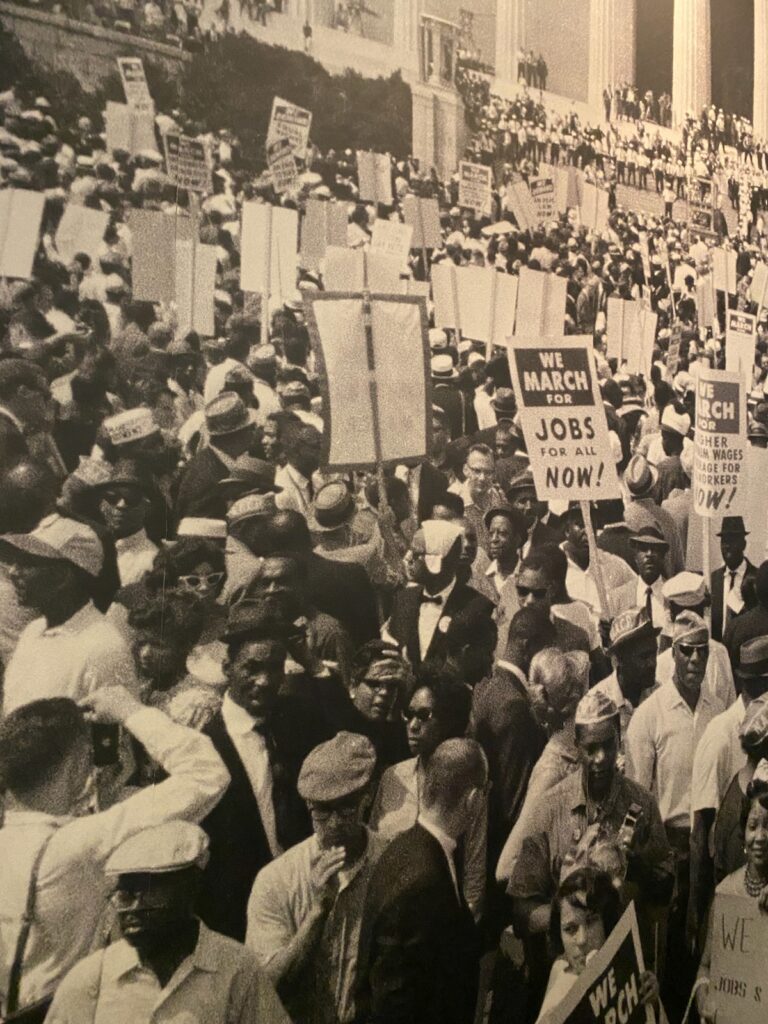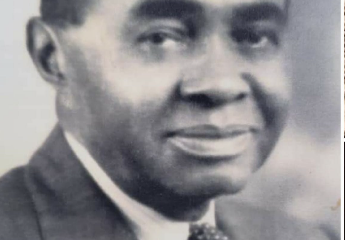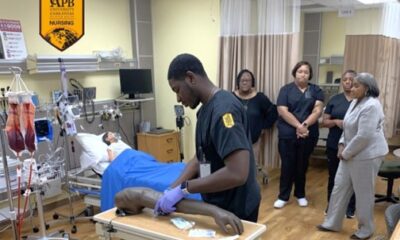Featured
Black Americans’ Income Levels Today Look Too Much Like The Past

Dr. Carter G. Woodson, recognized as the “Father of Black History”, understood the economic inequity Black Americans faced when he was a young teenager. To supplement his family’s income, he worked in the coal mines of West Virginia alongside his father and delayed the start of high school until he was 20.
When he completed high school in two years, it proved to be only the beginning of Woodson’s educational ascent. He taught school and became a principal, traveled abroad to experience other cultures and returned to the United States for college in Kentucky followed by graduate studies at the University of Chicago and finally, the completion of his Ph.D. at Harvard. W.E.B. DuBois was the first African American to graduate from Harvard, and Woodson became the second.
In 1950 Dr. Woodson died from a heart attack. He bequeathed America a body of work dedicated to the preservation and celebration of African American contributions to society. Twenty-six years later, President Gerald Ford expanded Black History Week which Dr. Woodson began to Black History Month.
The White House designation crowned Dr. Woodson’s work with national credibility, connoting what our lived experience bore out: We are a triumphant and integral part of the American story. Yet by many metrics – especially economically — we lagged behind white Americans then and now.
Let’s start with the median income in 1950, the year Dr. Woodson passed. According to the U.S. Census, the median income for Black families was approximately $1,650. For white families, it was $3,300.

Four years later, one of the seemingly most intractable barriers to success was toppled when the U.S. Supreme Court ruled in Brown v. Board of Education that “separate but equal” was unconstitutional, clearing the way for Black students to attend the better equipped white schools. Education, long considered by most African Americans as the way to improve lives, beckoned as the equalizer.
The Civil Rights Movement arrived fast on the heels of Brown. Rosa Parks and the Montgomery Bus Boycott, the Selma to Montgomery March and Dr. Martin Luther King’s Nobel Peace Prize-winning nonviolent teachings for dismantling racial injustice ushered the nation into a new era where it appeared the ideals in the Constitution were en route to reality for millions of Black Americans long denied access to the basic building blocks for upward mobility.
When we look at the numbers, the economic journey has been marked by dishearteningly uneven progress even as we have recorded impressive political achievements.
In 2016 University of Chicago economist Kerwin K. Charles and Duke University economist Patrick Patrick Bayer published a study showing the earnings gap between African American men and white men was the same in 2016 as it was in 1964.
Charles said, “It is astounding that, in terms of economic rank, a Black man in the middle of his economic distribution is no closer to his white counterpart in terms of earnings than was his grandfather.”
But the economists did find that African American men at the top of the earnings scale had succeeded through the acquisition of higher education. Embedded in the study was an irony Charles explained, saying, “If one looks at the same number in 1950, it turns out that the rank gap which used to be the biggest at the top is now smallest at the top. It’s a complete reversal.”
However, we must acknowledge the loss of manufacturing jobs and mass incarceration delivered crippling blows to most Black men and continue to reverberate through our community.
Persistent gains in education – especially for Black women – have helped maintain Black Americans’ economic footing despite institutional obstacles and even a pandemic.
A 2021 Pew Research study reported 40% of Black adults lived in households that experienced lost job or wages since the coronavirus pandemic began. The only buffers were education and age, with college educated African Americans and those who are older faring a bit better. Many businesses were also forced to close during the early phase of the pandemic, but last year the Brookings Institute discovered a resilience among Black entrepreneurs which generated a wave of new online businesses.
One of Dr. Woodson’s most popular quotes reads:
“Real education means to inspire people to live more abundantly, to learn to begin with life as they find it and make it better.”
For a man born to former slaves who leveraged his hard-won education to open locked minds to the significant contributions of Black people, Dr. Woodson’s legacy inspires us — every February and throughout the year — to continue pushing for individual and collective economic advancements.

-

 Black History5 months ago
Black History5 months agoThe untold story of a Black woman who founded an Alabama hospital during Jim Crow
-

 Featured9 months ago
Featured9 months ago‘No Closure’ In Town Where Five Black Residents Were Either Murdered, Died Suspiciously Or Are Missing
-

 Black History9 months ago
Black History9 months agoBlack History Lost and Found: New Research Pieces Together the Life of Prominent Texas Surgeon and Activist
-

 Featured9 months ago
Featured9 months agoFounder of “The Folding Chair” Podcast Calls Montgomery’s Brawl ‘Karma’
-

 Featured8 months ago
Featured8 months agoThousands ‘Live Their Dream’ During National Black Business Month
-

 Featured10 months ago
Featured10 months agoJuneteenth And ‘246 Years Of Free Labor’ Are Key To Conversations About Reparations









